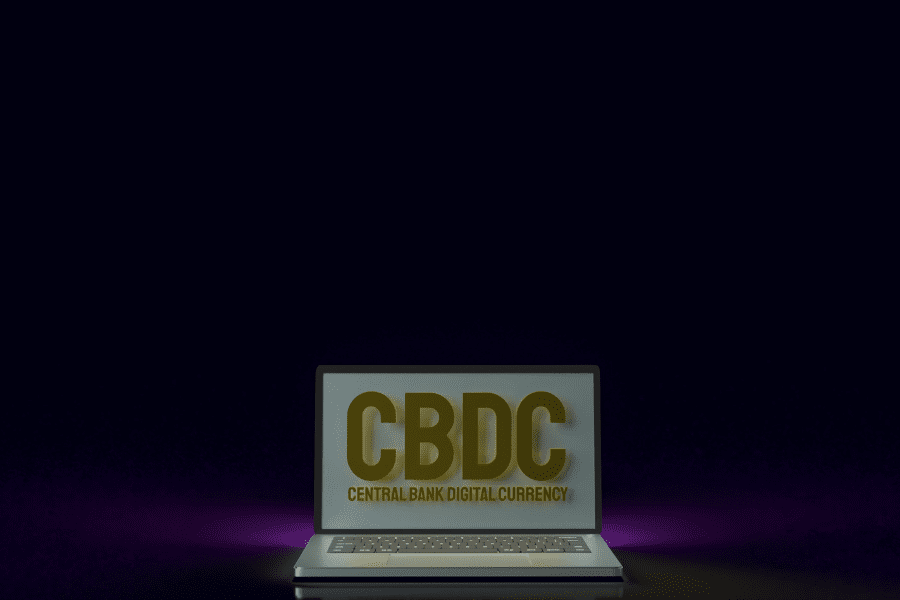The Ultimate Guide to CBDCs
June 12, 2023
Central bank digital currencies have the potential to forever change the way we transact and use our money. A growing number of countries are investigating the concept of central bank digital currencies (CBDCs).
In our ultimate guide, we will take a look at what CBDCs are, which countries are adopting them, and what it means for your wealth management.
Become a Nomad Capitalist client, and we will help you prepare for increased crypto regulations, wealth grabs, and taxes. We help high-net-worth individuals legally reduce taxes offshore, protect their assets, invest overseas, and obtain a second citizenship.
What are CBDCs?
CBDCs refer to digital currency issued by a central bank and are linked to the country’s official currency. Put simply, $10 American digital or electronic dollars will be worth $10 cash.
Cryptocurrencies and blockchain technology emerged in the late 2000s, and it has taken some time for trust and understanding of these decentralized currencies to be built. But cryptocurrencies such as Bitcoin and Ethereum are now extremely popular and used as an alternative to more traditional options.
Governments have realized that the benefits of creating their own digital currencies are massive. CBDCs are independent of physical commodities and are issued by central banks to support governments and commercial banking systems.
Although CBDCs are created as the digital equivalent of cash, it is not simply a replica. While anyone can use cash, digital payments require a user account with an intermediary.
Digital currency can be kept either as electronic tokens or in an account with the central bank, which can be held on mobile phones, prepaid cards, or digital wallets. Individuals, businesses, and financial institutions can all use CBDC.
There are two primary types of CBDCs, wholesale and retail. Wholesale CBDCs are given to financial institutions to simplify transactions and reduce risks. Retail CBDCs, on the other hand, are offered to the public by the central bank with the goal of being efficient and traceable.
It is suggested that retail CBDCs will initially exist alongside physical money and the traditional banking system. However, many predict it will inevitably mean the disappearance of cash.
Digital currencies controlled by central banks are thought to be just another strategy in the “war on cash.”

What is the Purpose of CBDCs
Each government has distinct objectives when it comes to CBDCs, but the fundamental purpose of each is the same.
In March 2022, US President Biden signed executive order 14067. Included in this order was the investigation into the creation of a CBDC for the United States.
This directive focuses on six key areas: financial inclusion, illicit activity, consumer and investor protection, financial stability, competitiveness on a global scale, and responsible innovation.
One of the main objectives is to address the fight against the illicit use of money. Another reason for adopting CBDCs is that they could provide greater access to financial services and potentially reduce poverty and greater equality.
A team of researchers, including the MIT Digital Currency Initiative, Maiden Labs, University of Virginia, and 13 research teams in India, Indonesia, Nigeria, and Mexico, were funded by the Bill & Melinda Gates Foundation.
They evaluated the inadequacies of current payment technologies in serving the needs of the most disadvantaged members of society and explored how CBDCs might address these challenges.
There are conflicting thoughts on the true motivation of governments pursuing the use of CBDCs.
Many have concerns that CBDCs will mean little privacy and security. The government will be able to control every transaction that is made with CBDCs, with the ability to freeze or withdraw your money if they see fit.
For example, the digital yuan has an expiration date, meaning that the Chinese central bank can revoke users’ money after that date. Clearly, CBDCs have the potential to give governing bodies greater power to restrict freedoms.

Which Countries Have CBDCs
More than 110 countries are investigating their CBDCs, and some have already started actively using government-backed digital currencies.
The Bahamas introduced its national central bank digital currency in 2020, and Ecuador officially started using its CBDC in 2014. China now has one of the most advanced digital currencies in the world.
The introduction of CBDCs could lead to significant consequences in foreign exchange markets.
For example, China’s CBDC has challenged the preeminence of the US dollar, and in the event that the digital yuan replaces the dollar as the dominant payment tool in China, it could have far-reaching implications.
Around 60 countries, including Australia, India, and Russia, are in the advanced stage of exploring and researching the use of CBDCs but have yet to introduce them as currency officially.
As with all currencies, including cryptocurrencies, they are not all created equal, and it is no different with CBDCs.
Not all countries are jumping on the CBDC train. For example, territories like the UAE still offer cash-friendly banking and investment options. (Check out our article to discover why the UAE is one of the best countries to live in, incorporate, and be a resident.)
What’s the difference between a Crypto and CBDC?
Unlike cryptocurrencies or stablecoins, CBDCs are state-operated and issued.
The entire ethos of blockchain technology and cryptocurrencies are that they are self-governed and decentralized.
CBDCs, on the other hand, are entirely centralized and controlled by the central banks. The central banks will not only distribute and control this digital currency, they also enforce regulations on all transactions.
CBDCs are also distinct from stablecoins that are pegged against a currency, such as the US dollar because they are equivalent to a dollar. One CBDC dollar is the exact digital equivalent of a fiat dollar.
Each transaction using CBDCs will automatically result in data being shared with tax and regulatory authorities.
Unlike digital cryptocurrencies such as Bitcoin and Ethereum, CBDCs are tethered to a country’s national currency and will ideally be less volatile. The Federal Reserve of America
believes a CBDC would be the safest digital asset available for the general public.
How to prepare for CBDC adoption?
It might take several years before these policies can be successfully enforced in the US.
However, CBDCs will likely become a reality in many major countries, so it’s important to prepare for their implementation now.
The phasing out of fiat currency has highlighted the importance of investing in physical assets like real estate or precious metals that are harder for central banks to control and trace.
Alternatives, like cryptocurrencies, may also offer advantages and excellent investment options in the long term.
In the event that most countries adopt digital currencies, it would lead to eventually cashless systems.
A final decision about a US central bank digital currency has yet to be announced, but many believe it should be explored and has massive implications.

Conclusion
Central bank digital currencies (CBDCs) are not the same as decentralized cryptocurrencies but rather the electronic form of fiat money.
While some argue that CBDCs will simplify and mean greater financial inclusion, there is the opposing view that there are significant downsides, including a lack of privacy and freedom.
It is still early days, but the implementation of CBDCs seems inevitable. Don’t ignore potential threats to your financial freedoms.
Speak with the Nomad Capitalist team today and start creating your Ultimate Action Plan to protect and diversify your assets, reduce your taxes, escape big government and go where you’re treated best.
FAQs
CBDCs would make transactions more straightforward by allowing central banks to interact directly with individuals.
Digital currencies would also make it easier and cheaper to send money across borders. This would save people money on fees when sending and receiving currency and encourage competition. It is also hoped that digital currencies will greatly reduce illicit activity.
The benefits are already being appreciated by some territories that have adopted CBDCs. For example, in Jamaica which started using its CBDC in 2022, it is predicted that the digital currency will result in savings of around $7 million a year.
Lack of trust in this new form of technology-based currency means it has failed to take off everywhere. For example, Ecuador, one of the first countries to adopt CBDCs, has since canceled it.
Another major concern is the potential of cyber-attacks and other online security risks, which could lead to serious consequences, and is a major disadvantage compared to traditional cash-based systems.
Countries also face the challenge of needing costly and adequate technical and legal structures before issuing digital currencies.
Last, but not least, are the potential threats to privacy and personal freedoms.
Making all transactions traceable won’t end criminal behavior, but it does run the risk of punishing and criminalizing those with a legitimate need to use cash.
It’s one thing to have some cash in your physical wallet that might potentially get lost or robbed. It’s something else entirely to have your money in a digital wallet which the government can potentially delete at any time because they don’t like you or your spending habits.
According to the International Monetary Fund, well-designed central bank digital currencies (CBDCs) can provide greater resilience, safety, and availability than cryptocurrencies.
On the other hand, crypto assets are inherently volatile and depend on supply and demand without any backing from governments or agencies.
CBDCs and crypto are quite different in this regard but, as they are based on the same technology, they both are susceptible to hacking.


How to Get UAE Citizenship – The Complete Guide
Sovereignty – both national and personal – shapes ambition, secures wealth, and defines status in a shifting global order. For the high-achieving global citizen, acquiring a second or even third passport is more than a lifestyle upgrade; it’s a strategic move in long-term financial and geopolitical positioning. But not all citizenships are created equal – […]
Read more

A Gateway to Central Asia: New Kazakhstan Golden Visa Program for 2025
Central Asia just raised the stakes in the golden visa game. In May 2025, Kazakhstan officially launched a 10-year Golden Visa program in an ambitious move to position the country as a serious contender in the global investor migration space. At a time when other international regions are rolling back their citizenship and residency options, […]
Read more

Top Countries Offering Golden Visas in 2025
Residency is no longer about lifestyle – it’s about leverage In an increasingly unpredictable world, Golden Visas offer something most governments can’t: certainty in exchange for capital. They are more than migration tools; they are strategic safeguards offering residence rights, future citizenship, global mobility, and access to tax-friendly jurisdictions. For investors, entrepreneurs and globally minded […]
Read more





